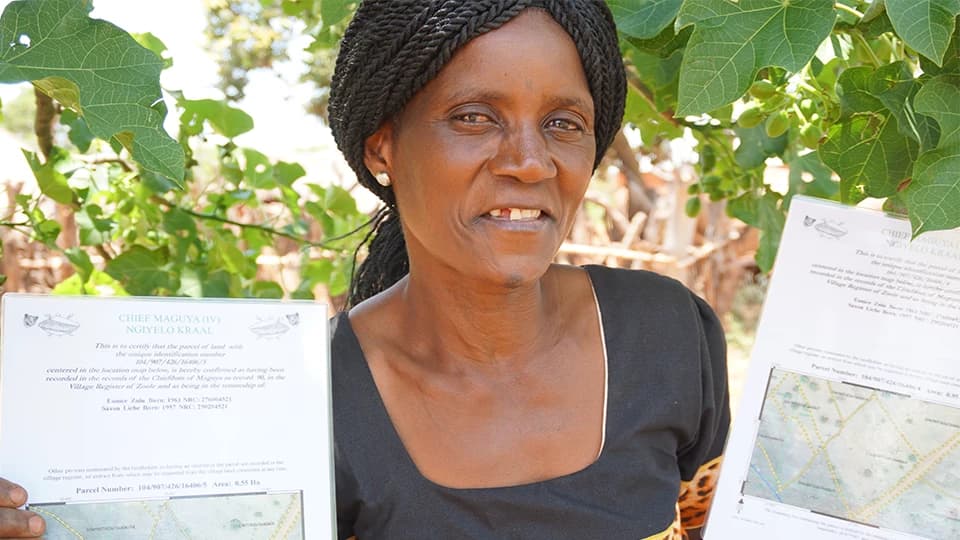We're loading the full news article for you. This includes the article content, images, author information, and related articles.
Despite progressive laws, an audit by the Kenya Land Alliance reveals systemic exclusion of women from community land registers, threatening their livelihoods and deepening gender inequality across the country.

NAIROBI, Kenya – Nearly a decade after the enactment of the Community Land Act of 2016, a landmark piece of legislation designed to secure the land rights of communities, women across Kenya continue to face systematic exclusion and discrimination, according to civil society organizations. Lobby groups warn that deep-seated patriarchal norms and sluggish implementation of the law are disenfranchising thousands of women, denying them their constitutional right to own and manage land.
An audit by the Kenya Land Alliance (KLA), a leading non-governmental organization, has exposed a critical flaw in the registration process: a complete lack of gender-disaggregated data in the community land inventories submitted by counties. This omission makes it impossible to track women's participation or ensure their rights are protected, effectively rendering them invisible in a process that is fundamental to their economic survival. The situation is particularly dire in pastoralist communities. In Laikipia County's Ilpolei community, for instance, women report being actively excluded from community land registers and barred from meetings where crucial decisions about land management are made.
“The men won't even allow you to attend the meetings,” Florence Siamanta, a resident of the Ilipolei community, told the Daily Nation on Monday, 17 November 2025. “If you attempt to go, they chase you away like chickens.” Her testimony highlights the stark gap between the legal protections enshrined in Kenyan law and the reality on the ground.
Kenya's 2010 Constitution, particularly Articles 27 and 60, explicitly guarantees equality and prohibits gender discrimination in law, customs, and practices related to land and property. The Community Land Act of 2016 was intended to operationalize these principles by providing a legal framework for the recognition, protection, and registration of community land. The Act mandates the inclusion of women in community assemblies and requires that community land management committees have female representation.
However, the implementation has been fraught with challenges, including procedural uncertainties and the persistent influence of customary laws that favour male inheritance and ownership. According to a 2021 analysis published in the African Journal on Land Policy and Geospatial Sciences, customary practices often obstruct women's participation in decision-making processes, leading to their exclusion. This conflict between statutory and customary law is a primary barrier to achieving gender equity in land tenure.
The exclusion of women from community land registration reflects a broader, nationwide gender gap in land ownership. Statistics from various sources paint a grim picture. A 2018 report by the Kenya Land Alliance analyzing title deeds issued between 2013 and 2017 found that women received only 10.3% of the titles, which translated to a mere 1.62% of the total land acreage. More recent data from the 2022 Kenya Demographic and Health Survey (KDHS) indicates that only about 3% of women in Kenya hold individual land title deeds, while 20% have joint ownership with a spouse or partner.
The National Land Commission (NLC) has also acknowledged the severe disparity. In one statement, the NLC revealed that as little as one to two percent of land in Kenya is legally owned by women individually. This lack of ownership has profound consequences, as land is a critical asset for economic empowerment, food security, and accessing credit. The Food and Agriculture Organization (FAO) has noted that increasing the amount of land owned by women could significantly boost food production in the country.
The pace of implementing the Community Land Act has been slow, further compounding the problem. A report by Namati, a legal empowerment organization, noted that as of May 2023, only 46 out of 315 group ranches had fully transitioned to community land under the new law. Key barriers identified include conflicts, financial constraints, and a lack of information about the process.
In response to these challenges, advocacy groups like FIDA-Kenya and GROOTS Kenya are intensifying their efforts. They are conducting civic education to raise awareness among women about their rights and providing legal support to challenge discriminatory practices. These organizations emphasize that securing women's land rights is not just a matter of equity but is fundamental to poverty reduction and sustainable development in Kenya.
On Tuesday, 5 November 2024, the National Land Commission's CEO, Kabale Tache, signaled a renewed commitment to addressing these issues. During the launch of the Strategic Direction 2024, she affirmed the NLC's dedication to ensuring women receive equitable treatment and committed to a target of at least 30% representation for women on community land decision-making committees. For women like Florence Siamanta, the fulfillment of such commitments is urgent, as their livelihoods and futures depend on it. Without decisive action to enforce the law and dismantle discriminatory cultural barriers, the promise of equitable land ownership for Kenyan women will remain unfulfilled.
Keep the conversation in one place—threads here stay linked to the story and in the forums.
Sign in to start a discussion
Start a conversation about this story and keep it linked here.
Other hot threads
E-sports and Gaming Community in Kenya
Active 9 months ago
The Role of Technology in Modern Agriculture (AgriTech)
Active 9 months ago
Popular Recreational Activities Across Counties
Active 9 months ago
Investing in Youth Sports Development Programs
Active 9 months ago